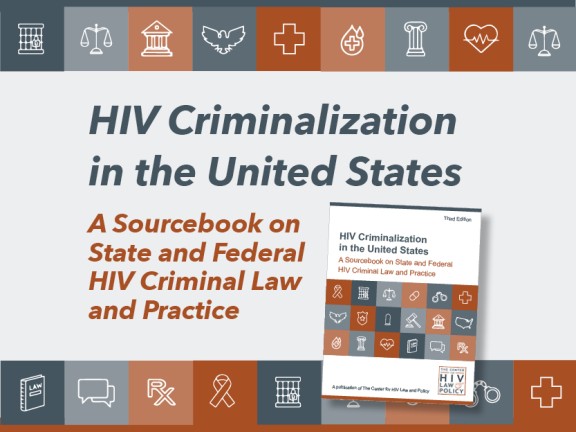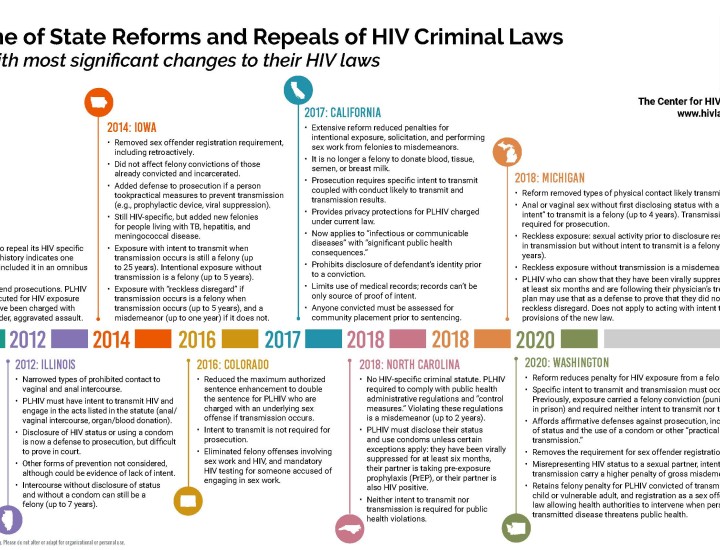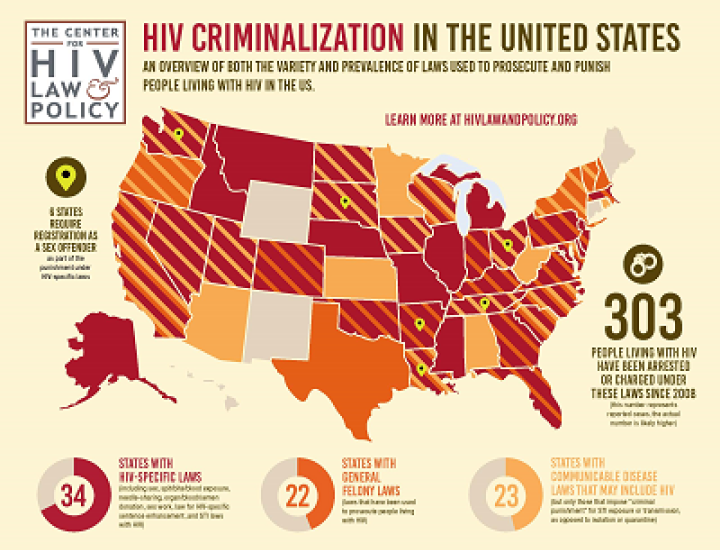Published August, 2017
HIV Criminalization in the United States: A Sourcebook on State and Federal HIV Criminal Law and Practice, CHLP (updated January 2024)

This resource for lawyers and community advocates outlines punitive laws, policies, and cases affecting people living with HIV (PLHIV) and other communicable diseases in all 50 states, the military, federal prisons, and U.S. territories. This Third Edition of the Sourcebook was originally published in 2017 and was updated in January 2024.
The HIV Criminalization Sourcebook includes the text, related case law, and analysis of statutory provisions that:
- 1. criminalize non-disclosure of HIV status or exposure of a third party to HIV;
- make exceptions to the confidentiality and privacy rights of PLHIV;
- provide for sentence enhancements for PLHIV convicted of underlying crimes such as prostitution and solicitation; and
- require sex offender registration for PLHIV.
It may be used as an aid for attorneys of PLHIV prosecuted for “HIV exposure” or non-disclosure of HIV status, as well as for advocates who want to reform the HIV criminal laws in their state.
The Sourcebook also includes punitive provisions and restrictive measures for people with other sexually transmitted infections (STIs) and communicable diseases. Such provisions may include mandatory testing, quarantine, and isolation. For more information on the Sourcebook’s contents and how to use it, see the introduction on page 1.
CHLP, the Georgia Coalition to End HIV Criminalization, HIV Modernization Movement Indiana (HMM), and HIV Prevention Justice Alliance hosted a webinar on the Sourcebook, Introducing the Sourcebook on U.S. State and Federal HIV Criminal Law and Practice: Pathways to Reform and State Perspectives on Reform Strategy. The webinar provides an overview of the Sourcebook, including a discussion of different pathways to reform HIV criminal laws, some of the advantages and disadvantages of these different options, and key factors to consider in deciding on a reform strategy.

